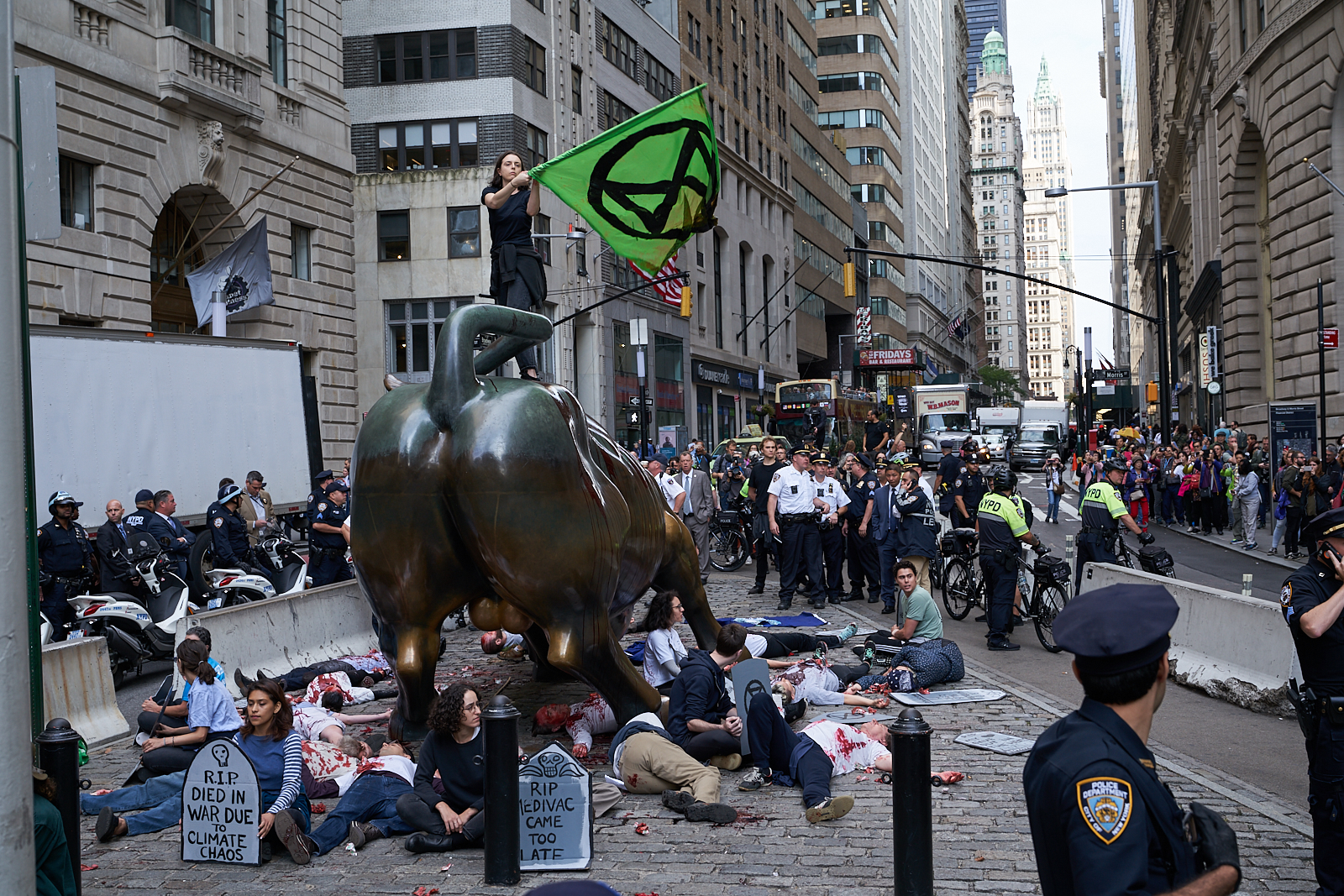
BY MARK HALLUM | A group of activists began this week a messy, but peaceful revolt in Manhattan against the government for inaction on climate change.
It started with a Monday die-in at the Charging Bull in Financial District on Monday, the first of a series of demonstrations, according to the group, Extinction Rebellion NYC, who said the week would be full of demands for the government to take action on ecological emergencies.
The Charging Bull was showered in fake blood on Oct. 7 as hundreds lay on the ground playing dead.
“The government must tell the truth about the climate and wider ecological emergency, it must reverse all policies not in alignment with that position and must work alongside the media to communicate the urgency for change including what individuals, communities and businesses need to do,” part of the group’s demands read. “We do not trust our government to make the bold, swift and long-term changes necessary to achieve these changes and we do not intend to hand further power to our politicians. Instead we demand a Citizens’ Assembly to oversee the changes, as we rise from the wreckage, creating a democracy fit for purpose.”
Extinction Rebellions warpath trailed on with multiple events organized in a single day.
On Oct. 9, two demonstrations were planned for Washington Square Park, one at 2 p.m. specified by the group as “family friendly,” and another one at 6 p.m. with no such designation. A big turnout was expected for a rally at Columbia University’s campus at 3 p.m. the same day.
Next, Extinction Rebellion was planning to protest in front of the Fox News headquarters at 1211 Avenue of Americas Oct. 10 at 9 a.m.
According to Extinction Rebellion, New York was only one of 60 cities across the U.S., including Berlin, Amsterdam, London and Paris, to demonstrate on Oct. 7 with more planned for the week of Indigenous People’s Day from Oct. 14 through Oct. 21.
Extinction Rebellion’s demands may seem like a tall order, but they are consistent with scientific claims that greenhouse gas emissions need to be cut drastically by 2025 to 2050 in order to prevent hardship for human life on the planet.
John Schellnhuber, director of the Potsdam Institute for Climate Impact Research, told The Guardian all coal fired power plants would need to be closed down by 2025 and the combustion engine would have be retired completely by 2030.
About 41 percent of economic experts polled by New York University’s Institute for Policy Integrity in 2015 claimed the economic impacts of climate change enter significant levels by 2025.

































